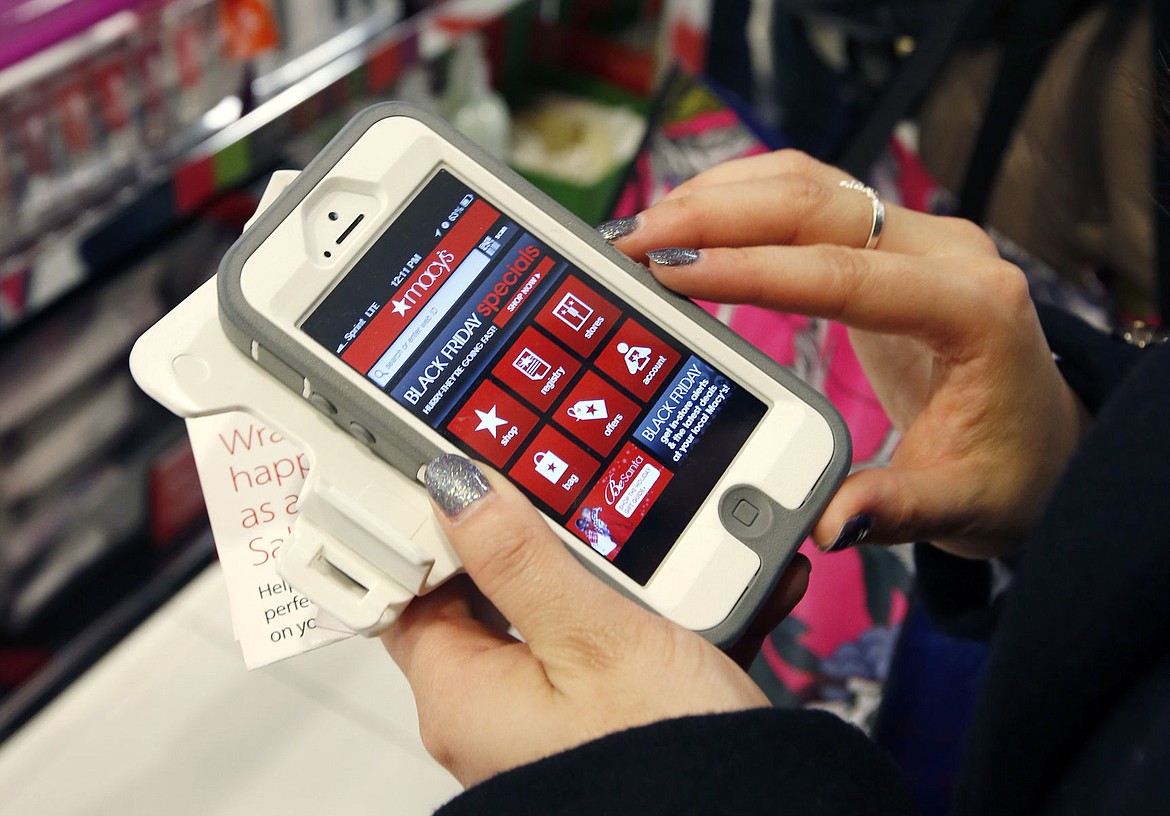Cyber Monday transforms as shoppers are more connected
The Monday after Thanksgiving is still a time when millions of Americans pause to check out online deals and check off items from their gift list
NEW YORK — The Monday after Thanksgiving is still a time when millions of Americans pause to check out online deals and check off items from their gift list — but a one-day Cyber Monday frenzy appears to be going the way of the dial-up modem.
Shoppers who have high-speed connections at home and on their phones are pouncing on deals that stores are spreading out over several days, leaving the so-called Cyber Monday online shopping bonanza in danger of losing its title as the top online sales day.
“Because Cyber Monday is no longer about the connection, it’s just another sales day that I can plan for, like a Labor Day sale or Fourth of July sale,” said Gartner analyst Gene Alvarez. “I know it’s coming: Does it fit into my schedule, and will I do my holiday shopping that day, Black Friday or wait to see what comes up later?”
So instead of door-buster markdowns on a select few products, retailers are shifting to a stream of discounts and alerts during the entire week via email and social media.
Cartwheel, Target’s digital app, started offering holiday deals including 50 percent off one toy per day on Nov. 1. Amazon started offering 35 days of Black Friday deals on Nov. 16. And Walmart kicked off its Cyber Monday deals on Friday for the first time as it aimed to grab customers ahead of its competitors.
“It’s really this weeklong flow of deals,” said Shawn DuBravac, chief economist at the Consumer Technology Association.
Lea Bishop from Carmel, Ind., picked up tickets to the Texas Tenors at her local performing arts center because they had a rare buy-two-get-two-free deal.
“It’s those once-a-year deals that I’m looking for today,” she said. Otherwise, she noticed retailers have been spreading out deals.
“It seems like they should rename Black Friday to Black Friday Week and rename Cyber Monday to Cyber Monday weekend,” she said.
Matthew Cannata of New Britain, Conn., said he and his wife meticulously map out their shopping weekend. They hit the stores Thursday night and Friday morning and started browsing online Saturday. They saw more discounts early this year and use services like buying items online and picking them up in the store, Cannata said.
“We are casting a wide net on any and all types of gifts,” he said.
On Monday, he bought an Amazon Tap smart speaker for $40 off at $90 on Amazon.com and Bluetooth stereo headphones for $30, $100 off the original price.
The Monday after Thanksgiving has been the busiest day of the year for online shopping since 2010, and “Cyber Monday” referred to the day when people returned after the holiday weekend to offices where they had high-speed internet connections.
Cyber Monday still packs the biggest punch in terms of a single online shopping day — for now. As of 7:30 p.m. EST on Monday, shoppers were on track to hit a record of $3.39 billion, up 10.2 percent from a year ago, according to a tally by Adobe Digital Insights, which tracks online retail transactions.
But other days are catching up. On Black Friday, consumers spent $3.34 billion, a 21.6 percent jump from last year, according to Adobe.
“Because of technology, the shopping process has been deconstructed, and the consumer constructs their own flow,” said Alvarez.
Joseph Jaconi, whose company TechArmor sells smartphone accessories through Amazon, other outlets and his e-commerce site, said Black Friday was his biggest sales day of the year. He said he expected Cyber Monday to outpace that, with sales about double or triple that of a normal day. Amazon kicking off its deals on Nov. 16 helped give the whole month a sales lift.
“Cyber Monday has kind of become Cyber Month,” he said.
Research firm comScore predicted that online spending on Cyber Monday will jump to $3.5 billion from $3.12 billion last year, and will release its tally for the day on Wednesday. The firm’s preliminary holiday shopping forecast, which includes November and December, is for online sales to rise as much as 19 percent to $81 billion.
Overall, the National Retail Federation trade group is forecasting holiday sales for the November and December period to rise 3.6 percent to $655.8 billion, better than the 3 percent growth seen in the year-ago period.
–––
Associated Press writer Josh Boak in Washington, D.C., contributed to this report.

